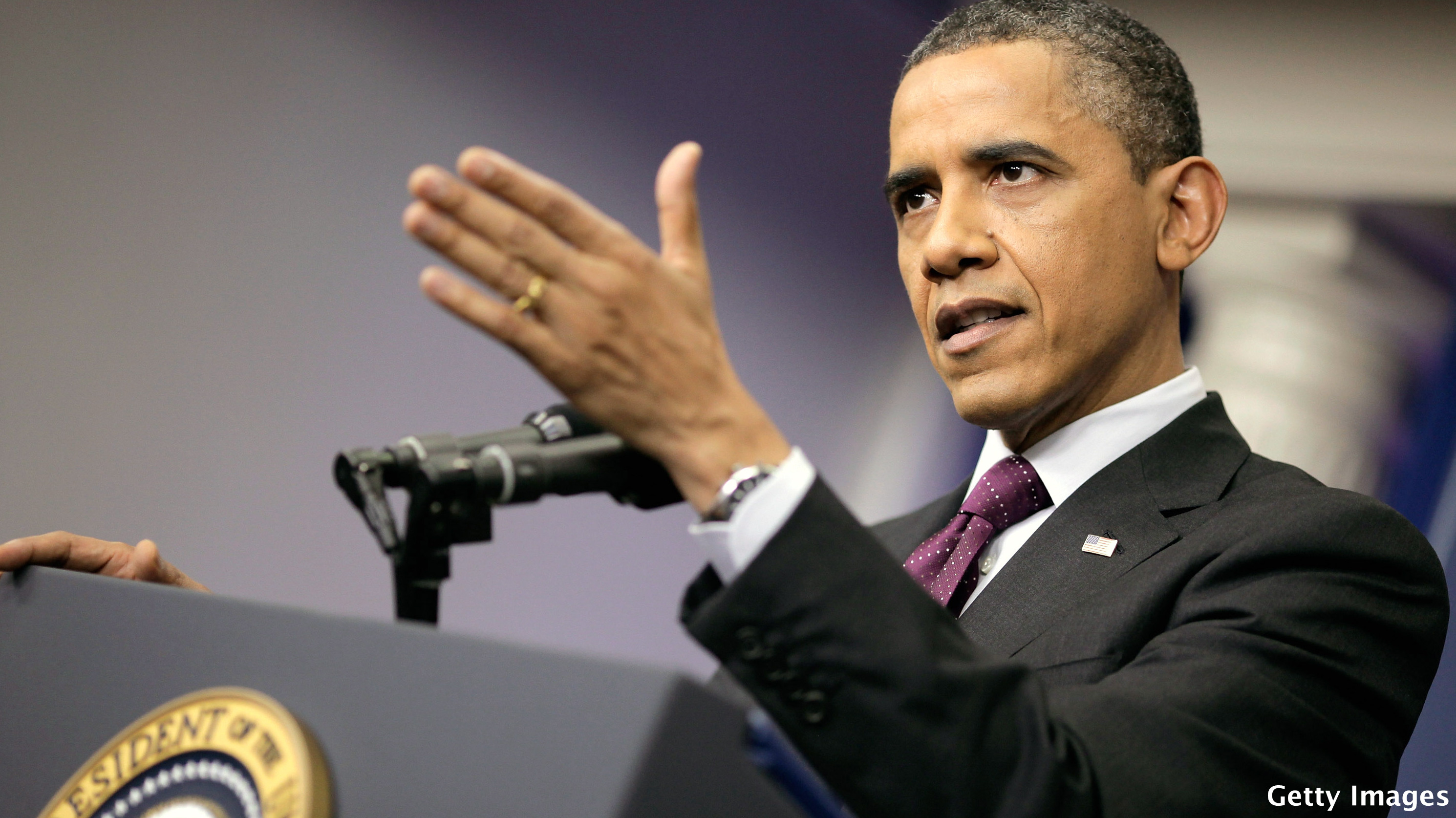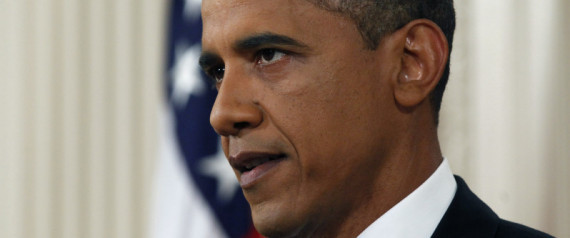 Washington (CNN)
Washington (CNN) -- President Obama unveiled a $3.8 trillion budget request Monday that hikes taxes on the rich, spends new money on infrastructure and education, but does little to reform the entitlement programs that pose the biggest long-term threat to the federal budget.
"We built this budget around the idea that our country has always done best when everyone gets a fair shot, everyone does their fair share and everyone plays by the same rules," Obama said in his budget message.
But the budget forecasts a deficit for fiscal year 2012 that will top $1.3 trillion, before falling in 2013 to $901 billion, or 5.5% of gross domestic product.
The deficit projections, which have hovered near $1 trillion for each year of the Obama presidency, mean that Obama will not satisfy his 2009 promise cut the deficit in half by the end of his first term.
The White House has billed the document as a "blueprint for how we can rebuild an economy where hard work pays off and responsibility is rewarded."
While the White House and Democrats are advocating a balanced approach to economic growth -- including spending cuts, increased tax revenue and investments in rebuilding infrastructure such as highways and bridges, Republicans will argue for deeper spending cuts and lower tax rates.
Both sides contend that their positions will bring the economic growth needed to stimulate significant reductions in the federal deficit and rising national debt.
Senior administration officials who discussed details of the budget with reporters said it reflects policy themes Obama presented in a major speech last year in Kansas and in his recent State of of the Union address.
In the Kansas speech, Obama presented Americans with a choice: a "fair shot" with him, or a return to "you're on your own economics" of the previous Republican administration under President George W. Bush.
Obama's 2013 budget proposal had to fit discretionary spending below the limits set in the Budget Control Act approved by Congress last summer.
Over a decade, the cuts enshrined in the Budget Control Act total in the neighborhood of $1 trillion in discretionary spending.
Under the White House plan, discretionary spending -- which generally means day-to-day government funding not including entitlement programs such as Social Security, Medicare and Medicaid -- is projected to fall from 8.7% of GDP in 2011 to 5.0% in 2022. However, details on specific program cuts were not immediately available.
A few areas of reduction are known: The Pentagon plans to spend $487 billion less over 10 years, a course that Secretary of Defense Leon Panetta has already laid out in some detail.
For example, Panetta has said the Army will save money by pulling two of its four brigades out of permanent bases in Europe to bases in the United States. Meanwhile, the Navy will be getting rid of older ships that don't have the latest ballistic missile defense.
The budget also raises taxes by $1.5 trillion, including a provision to allow the expiration of Bush-era tax cuts on families earning more than $250,000 a year, as well as incorporating the so-called Buffett Rule that requires households earning more than $1 million to pay a 30% tax rate.
Later this month, the president will unveil a plan to reform corporate taxes, including lowering rates, administration officials said.
The administration is also proposing a series of investments focused on infrastructure, education and domestic manufacturing, including $30 billion to modernize schools and an additional $30 billion to retain and hire teachers and first responders.
In addition, the budget will also offer details on what the White House calls a Financial Crisis Responsibility Fee. The tax will raise $61 billion over 10 years from large financial institutions to help offset the cost of the TARP bailout and Obama's mortgage-refinance programs.
With a presidential and congressional elections coming in November, the hostile political environment in Washington is expected to prevent the president's budget plan from advancing in Congress.
Virginia Gov. Robert McDonnell, delivering the Republican weekly address Saturday, said he expected Obama's budget proposal to "increase taxes, ignore entitlement reform and fail to address the federal debt."
"In short, we can expect that this will not be a proactive budget built to promote fiscal responsibility and future prosperity," McDonnell said. "Rather it appears we'll see a bloated budget that doubles down on the failed policies of the past."
In other budget matters, Obama's new chief of staff stopped short on Sunday of predicting Congress would agree to extend the payroll tax cut for the rest of 2012.
The issue, a top priority of the Obama administration and the focus of congressional negotiations in recent weeks, reflects the sharp partisan divide permeating Washington as Obama prepares to his budget proposal.
Jack Lew, the former White House budget director who just took over as chief of staff, told CNN's "State of the Union" that Congress should resolve the dispute over extending the lower payroll tax rate from 2011.
When pressed about whether a deal would get done, Lew refused to predict success.
"I believe it should get solved, and I know there are people working hard even this weekend trying to solve it," said Lew, who appeared on CNN and four other network and cable talk shows Sunday.
Both the budget proposal and the payroll tax issue continue a political debate over government spending that has dominated Washington since the 2010 congressional elections in which Republicans took control of the House and reduced the Democratic majority in the Senate.
A protracted political fight in December brought a two-month extension of the lower payroll tax rate from last year, giving Congress more time to work out a longer-term deal.
However, the same political arguments from December continue to stymie talks being held by House and Senate negotiators.
Obama and Democrats are pushing for an extension with no strings attached, while Republicans seek to tie more spending cuts and other priorities to the plan.
A 20-member House-Senate conference committee is working to extend the payroll tax cut for 10 months before the short-term extension runs out February 29.
The tax break is estimated to affect about 160 million Americans, saving the average family about $1,000 a year
















